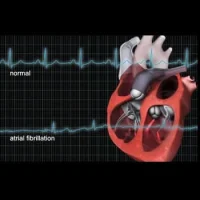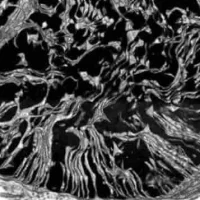A team of scientists at the University of Missouri have determined that smooth muscle cells are a primary contributing factor to vascular stiffness, one of the major causes of hypertension.
Vascular stiffness is an important component of hypertension in ageing adults. There is a 90 percent risk of developing hypertension due to ageing in both men and women. Several mechanisms have been identified for arterial stiffness and most previous research has focused on the structural matrix proteins that compose the outer walls of blood vessels and the endothelial cells that line the inner portion of the vascular walls. However, Gerald Meininger, director of the Dalton Cardiovascular Research Center and a professor of medical pharmacology and physiology in the School of Medicine at MU and his team focused on a new potential source – smooth muscle cells – that constitute a major component of the middle of the blood vessel wall.
Meininger explains that arterial and vascular stiffness is a normal process of biological ageing and is associated with an increased risk of heart attacks and strokes. With ageing, our aorta tightens and becomes rigid. This can cause a range of problems including high blood pressure, increased risk of adverse cardiovascular events and even death.
Meininger’s team collaborated with researchers at Rutgers University and the New Jersey Institute for Technology, and isolated aortic cells from normal and hypertensive rat models. Both young and aged animals were used. They then used atomic force microscopy to measure the compression force of the needle against the specimen and how the tip adhered to the smooth muscle cells.
"We found that hypertension increased both vascular smooth cell stiffness and adhesion or stickiness, and that these changes were augmented by ageing," Meininger said. "Our results are adding to our understanding and taking studies in a different direction. Although all cells are contributing to arterial stiffness, it's important to identify the order in which they're adding to the problem. Identifying smooth muscle cells as a contributor can help identify possible preventatives and potential drugs to counteract and reverse the disease and keep vessels healthier as we age."
The initial results of this study appear to be promising. MU officials plan to request authority from the federal government to begin human drug development if additional studies are successful. The goal is to develop new treatments for arterial stiffness and resulting hypertension.
Source: University Of Missouri-Columbia
Image Credit: Mizzou News










